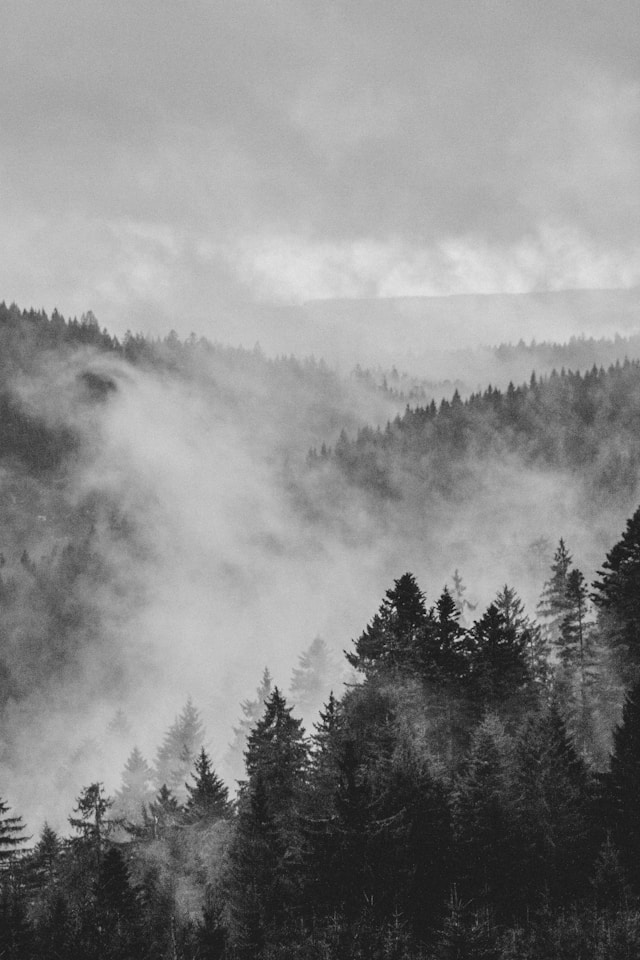CLN Online is grateful to Ganesh Aiyanna for his insightful contributions on a versatile array of subjects relevant to Kodavas and Kodagu. The current article touches upon a very important and relevant aspect affecting Coffee Planters in Kodagu and their experienced views would be welcomed as comments to this article.
Articles on the Environment, Climate Change and impact on weather patterns in Kodagu, Pollution/Garbage Menace, Responsible Hospitality, Education, Care for Elders… are an important focus for CLN in raising awareness amongst the Kodavas and the larger Community. – CLN Newsdesk
The meeting held at KVK Gonikoppal, on 21st July, 2025, under the aegis of PUTHARI, was basically to understand how the EU regulation and new certification called EUDR will impact Coffee exports to EU from Kodagu.
Athena Infonomics is leading a critical study on digital traceability in agriculture, focusing on how digital systems can enhance transparency, improve farming practices, and strengthen regulatory compliance.
The purpose of the Digital Agriculture Traceability Study is to examine how digital systems track agricultural products from origin to consumer, identify gaps in current mechanisms, and assess how digital innovations can improve sustainability, transparency, and regulatory compliance, particularly under the EU Deforestation-free Regulation (EUDR).
A key component of this study is the India Deep Dive, which specifically focuses on the coffee and cotton value chains in India, with an emphasis on understanding how these sectors are preparing for and responding to EUDR compliance. The goal is to analyze current traceability practices, assess market readiness, and evaluate the role of digital solutions in shaping local economic and environmental outcomes.
Since coffee in Kodagu is shade grown, the new regulation could have quite an impact if deforestation or illegal tree felling is carried out after the cut off date.
There was a good interaction and discussion to explain to the team how much importance the people and planters of Kodagu give for preserving Nature because Kodavas and other original inhabitants of Kodagu basically are Nature worshippers and would not destroy forests knowingly and deliberately.
The concept of Devarakaadoo and Ooruu DevaKatt was explained to the team to make them understand on how much of importance the local planters ascribe to Nature worship. There are designated months in a year where the entire village becomes vegetarian and people don’t cut or prune trees because that is the healing time and regeneration for the trees and plants. This is applicable to animals too.
Hence though regulations like EUDR are basically important from the documentation angle, Kodagu by itself practices afforestation and maintenance of original forests; hence from that standpoint Kodagu may not face serious problems when it comes to EUDR CERTIFICATION.

Extending the dialogue to a related topic – Silver Oak. This tree is not native to Kodagu and was introduced mainly because of its rough bark, perceived excellent support for Pepper Vines as well commercial timber value. Just for the record, this tree was introduced by the British administration. Sadly Silver Oak became the nemesis of coffee plantations mainly because it’s defoliating leaves were falling from a height and damaging coffee flowers and are also very slow in degrading. As a consequence the falling leaves damaged the coffee flowers, buds and berries as they would sit above them forming a blanket carpet like situation all above coffee plants and not allowing free sunlight and open air from getting to the coffee plants. Moreover, the Silver Oak leaves also drastically changed the pH of the soil due to their slow degradation leading to long term change in the coffee ecosystem.
Now there is rampant and vengeful removal of Silver Oak trees across coffee plantations across Kodagu, which simply cannot be termed DEFORESTATION.
This removal of Silver Oak which is an introduced species in Kodagu and surrounding areas is being carried put for the good of the coffee estate ecosystem and EUDR REGULATION CANNOT SIMPLY TERM THIS REMOVAL OF SILVEROAK AS DEFORESTATION.



Coffee is mainly grown in Karnataka (Coorg and Chikmagalur) and yet the maximum consumption is in Tamil Nadu – the ubiquitous Madras Filter Coffee – which is essentially a lot of milk and sugar with generous adulteration with chicory (hopefully not tamarind seed powder!).
Surely the Kodavas can show some enterprise and open coffee shops – first in Coorg and across Karnataka and the country, like what the Malayalees have done with Chai Kadas (Tea shops). There is enough tourism in Coorg and Karnataka to warrant such small businesses to mushroom across the tourist landscape of Kodagu? Coorg arguably grows the best coffee in the world because it is grown under the shade of native trees (at least that is the belief). Market this aspect to your advantage even amongst the growing tourist footfall in Kodagu alone.
I am an ardent reader of the insightful articles written at CLN Online. Having studied with a good number of Kodavas in School at Bangalore and admired the similarities between our communities, makes me interested in Coorg related news.
We don’t grow coffee in Punjab, but having emigrated to Italy many decades ago, makes my interest in anything to do with coffee that much stronger. It is ironic that Coorg coffee is bought in abundance by Italian coffee manufacturers – especially premium brands like Illy and Lavazza. To imagine that it is shipped all the way to Milan, sorted, roasted and shipped across the world – including in India at perhaps upto 7 times the price at which the beans are bought at the farm gate, makes me wonder why a “smart” Kodava doesn’t do the same in India itself!
Roasters can be procured in India and from what I have seen, roasting the beans and consuming it “fresh” by consumers within India makes much better sense – both in terms of logistics, price realisation and taste. Surely you don’t want a European market to dictate terms of production to the Farmers – after all the West destroyed all their vegetation in the guise of the Industrial Revolution and expects the developing world to be responsible for their past misdeeds as regards environment degradation and its resultant impact on climate change?!
Everything that we do is not necessarily governed by commerce and profits. Yes – EUDR regulations are probably an unforeseen legislative threat – but just as we inherited a verdant green over, it is our responsibility to collectively leave a better landscape than the one we inherited. Plant more trees – it has to be a priority in every Planter’s agenda.
Well said
Agree
Great to see the “trademark” hat 🎩 that makes Ganesh Aiyanna the man he is!!
Thanks Bopaiah
Terrific article – so many messages. At the outset Kodavas from ancient times observed a very strict code of respect for Forests and Nature. Our Devarkadus were more than sacred – in a practical sense they ensured bio-diversity and served as a sanctuary for wild animals. The current exacerbated problem of human-animal conflict is due to the disproportionate increase in human population in Kodagu (300% in the last three decades) versus a decline in forest cover and wild animals.
Two large corporates were the harbingers of large scale timber felling in Kodagu – Tata Coffee post their acquisition of Consolidated Coffee and BBTC. It set the trend for conversion of robusta coffee replacement of arabica and unfettered timber extraction. The rest of ther planters followed suit and as the social occasion demanded, trees were cut.
The way to make up for this rather irresponsible act is to plant native trees regularly. These can be sourced from the Fireside Department and Forestry Colleges. Environment Science should be made mandatory in the academic curriculum too.
Well said